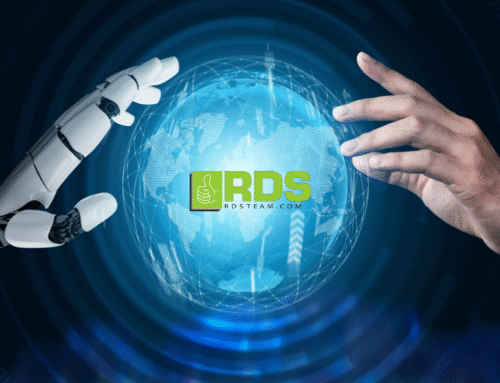Customer Relationship Management Software Insights and Practical Applications
Customer Relationship Management (CRM) software is a tool designed to help you manage and organize interactions with your customers. It centralizes important information like purchase history, communication, and sales activities into one easy-to-use system. CRM software streamlines how you track and improve customer relationships, making your sales and support processes more efficient.
By using CRM, you gain a clear, unified view of every customer, which helps you understand their needs and provide consistent service. It also automates routine tasks, freeing up your time to focus on building stronger connections and growing your business. With real-time insights, you can make smarter decisions that directly impact your customer satisfaction and retention.
Whether you’re managing a small team or a large organization, CRM software acts as your strategic partner in maintaining clear communication and delivering better experiences. It’s not just technology but a way to transform how you handle customer relationships every day.
What Is Customer Relationship Management Software?
Customer Relationship Management (CRM) software is designed to help you organize and manage your interactions with current and potential customers. It centralizes customer data and automates key sales, marketing, and service processes to improve efficiency and communication.
You will find its main functions divided into essential components, different types tailored for specific needs, and a progression that reflects advances in technology and business approaches.
Core Components of CRM
Customer Relationship Management software revolves around three primary functions: sales automation, customer service management, and marketing automation.
Sales automation tracks leads, monitors sales pipelines, and manages follow-ups. It helps you see each prospect’s status and prioritize efforts.
Customer service management stores case histories, manages support tickets, and facilitates communication with customers. This allows you to resolve issues faster and track performance.
Marketing tools automate campaigns, manage contacts, and analyze customer behavior. They help deliver targeted messaging and measure ROI.
Together, these components ensure you have a complete customer profile accessible from one platform.
Types of Customer Relationship Management Solutions
You can choose from three main CRM types: Operational, Analytical, and Collaborative.
Operational CRMs focus on streamlining daily business processes like sales, marketing, and support to improve efficiency.
Analytical CRMs collect and analyze customer data to provide insights on buying patterns, helping you make data-driven decisions.
Collaborative CRMs emphasize communication and information sharing between departments, enhancing coordination and customer experience.
Many solutions combine features from these types, but your choice depends on your business goals and complexity.
Evolution of CRM Systems
CRM began as a simple contact management system storing customer details and basic interaction histories.
With advances in technology, it has evolved to include automation of repetitive tasks, integration with other business systems, and the use of analytics.
Modern CRMs are typically cloud-based, accessible from multiple devices, and often use AI for predictive insights and personalization.
This evolution allows you to scale CRM use as your business grows, adapt rapidly to changing customer expectations, and make smarter decisions.
Key Features and Functions
You need tools that organize customer data, automate routine tasks, support service efforts, and provide insights into sales and customer behavior. These functions help you manage relationships efficiently and make informed decisions based on real data.
Contact Management
Contact management is the foundation of your CRM system. It stores detailed customer information, including names, phone numbers, email addresses, and communication history. This centralized database lets you easily access and update customer profiles.
With contact management, you can track every interaction, making follow-ups more personalized and timely. This feature also helps segment customers into groups, allowing targeted marketing or service approaches. Having organized and accessible contact data improves your response times and strengthens relationships.
Sales Automation
Sales automation tools streamline repetitive sales tasks such as lead assignment, follow-up reminders, and pipeline tracking. By automating these actions, you reduce manual work and minimize errors or missed opportunities.
This feature helps you monitor deal progress with visual sales pipelines and automatically score leads based on predefined criteria. You can also generate automated quotes and proposals, accelerating the sales cycle. Sales automation keeps your team focused on closing deals rather than managing administrative duties.
Customer Support Tools
Effective customer support tools track service requests, complaints, and resolutions within your CRM. You can assign tickets to support agents, prioritize issues, and maintain records of every interaction.
These tools often include knowledge bases and chat integration to facilitate quick responses. Having a clear view of outstanding issues allows you to manage support workflows efficiently and improve customer satisfaction. You reduce the risk of losing clients due to unresolved problems.
Reporting and Analytics
Reporting and analytics transform raw customer and sales data into actionable insights. You can generate customizable reports on sales performance, customer behavior, and service metrics—all in real time.
Dashboards display key performance indicators (KPIs) like conversion rates, customer retention, and sales forecasts. Analytics help identify trends, measure campaign effectiveness, and guide strategic decisions. This data-driven approach increases efficiency and helps you set realistic goals for growth.
Benefits of Implementing Customer Relationship Management Software
Implementing Customer Relationship Management software gives you tools to strengthen customer relationships, streamline operations, and make smarter business decisions. The system helps you engage customers more personally, operate more efficiently, and base strategies on accurate data.
Enhanced Customer Engagement
Customer Relationship Management software consolidates customer information, giving you a 360-degree view of each client’s history and preferences. This allows you to tailor your communication and offers based on real behavior, increasing the relevance of your interactions.
You can automate follow-ups, reminders, and personalized marketing, which maintains consistent contact without added manual work. This helps you build trust and loyalty by responding quickly to customer needs and anticipating their next steps.
By tracking engagement patterns, the software also identifies high-value customers and at-risk accounts. This insight lets you prioritize efforts and deliver timely support, ultimately improving retention and satisfaction.
Improved Business Efficiency
With Customer Relationship Management (CRM), you unify sales, marketing, and customer service workflows into a central platform. This reduces duplicate data entry and minimizes errors, freeing your team to focus on customer-facing activities.
Automation features handle routine tasks like lead tracking, email campaigns, and scheduling. These reduce administrative overhead and speed up your sales cycle.
Collaboration improves as teams share updated customer data in real time, preventing miscommunication. You gain oversight with dashboards and reports that highlight bottlenecks and performance gaps for prompt action.
Data-Driven Decision Making
CRM systems collect and organize vast amounts of data from every customer interaction. You can analyze this data to identify trends, forecast sales, and fine-tune targeting.
With built-in analytics and customizable reports, you turn raw data into actionable insights. This supports strategic planning grounded in facts, not guesswork.
Predictive tools within the CRM help you anticipate customer behavior, enabling proactive outreach and smarter resource allocation. This increases your ability to respond swiftly to market changes and customer demands.
Looking for a Customer Relationship Management software for your business? Get in touch with RDS, one of the leading business solutions providers in Miami, to guide you in finding the CRM that will suit your business needs. Call (888) 242-4242 or send us an email for more information today.

















